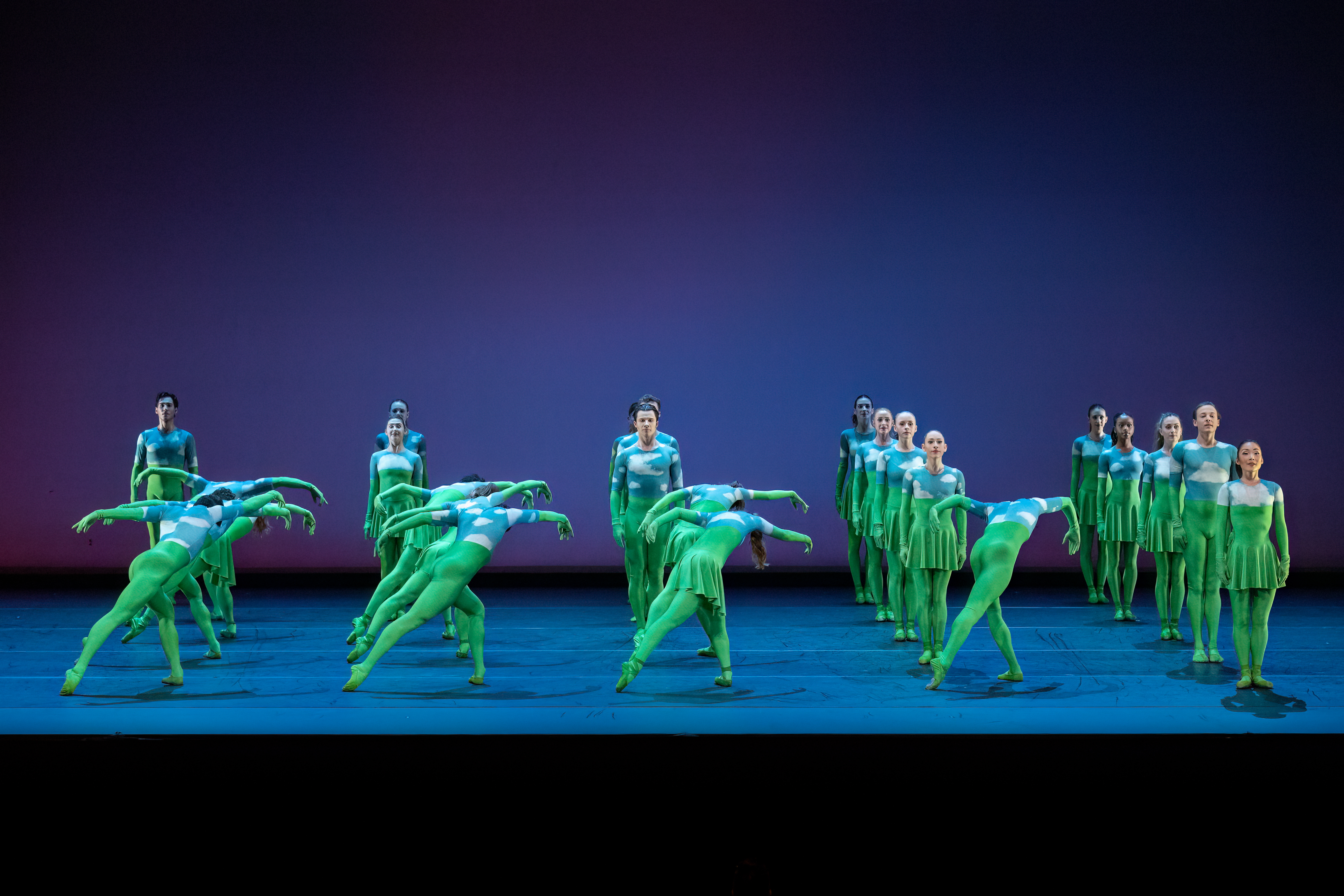REVIEW: Lyric’s ‘Carmen’ succeeds on vocal prowess, uncluttered direction
Georges Bizet’s Carmen is an opera best presented in a direct and straightforward manner, for its strength lies not in deep complexities of character development but in its infectious music and playful archetypes of 19th-century French opéra comique. The Lyric Opera’s most recent version, which opened on September 24th at the Kauffman Center, is refreshingly unfussy from both a musical and a dramatic standpoint. It featured exceptional musical direction from conductor Roberto Kalb, a newcomer who made the Kansas City Symphony sound warm and vibrant, attractively durable set designs by longtime Lyric favorite R. Keith Brumley, and naturalistic costumes by Susan Memmott Allred.
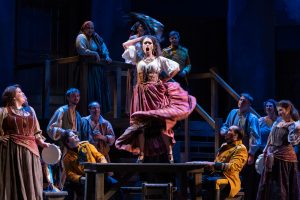
The Lyric’s last-minute call for a substitute tenor on opening night resulted in the acquisition of an exceptional Don José who at times seemed as if he had dropped in from another opera, which in fact he had: Viktor Antipenko was plucked from a Tristan und Isolde he was preparing for Seattle Opera, and he brought a fascinating range of vocal textures and unexpected dramatic twists. (The Lyric has confirmed that the temporarily indisposed Eric Fennell will return as Don José for performances on September 30th and October 2nd.)
Ginger Costa-Jackson has become one of the nation’s most-favored Carmens, and for good reason: Her dark, thrilling mezzo-soprano lent sizzling sensuality to the role, and her torchy bearing made her seem as much “life-force” as human being. She sang the initial Habanera in a relatively “straight” manner, after which her vocal-dramatic approach grew more intense and extravagant throughout the evening.
 The opera that Georges Bizet and his librettists crafted for Paris in 1875 might just as well have been called Don José, for the fate of this hapless, generally decent “innocent” often interests us more than that of the less complicated title character. Viktor brought near-Wagnerian gravitas to the role, making José seem much more in control than usual: As such, his transition from unflappable soldier to lovestruck schoolboy in Act I was so abrupt as to seem implausible. But make no mistake: This is an extraordinary tenor. The complex moods of his Flower Song made it into a highlight of the night.
The opera that Georges Bizet and his librettists crafted for Paris in 1875 might just as well have been called Don José, for the fate of this hapless, generally decent “innocent” often interests us more than that of the less complicated title character. Viktor brought near-Wagnerian gravitas to the role, making José seem much more in control than usual: As such, his transition from unflappable soldier to lovestruck schoolboy in Act I was so abrupt as to seem implausible. But make no mistake: This is an extraordinary tenor. The complex moods of his Flower Song made it into a highlight of the night.
Richard Ollarsaba portrayed the bullfighter, Escamillo, as a sort of dandy, with a solid baritone that lent about as much complexity to the role as the authors permit. Andrea Carroll presented a Micaëla that was not so much an innocent as an enamored woman who felt that José should be hers. When she gave José what is intended as a “kiss from your mother” (usually it’s on the cheek or the forehead), she planted a sloppy smooch directly on his mouth, causing José’s next line (“Ah yes, I can see my mother”) to evoke surprised laughter.
Conor McDonald was a solidly planted Morales, and the remaining roles were filled, in a distinguished manner, by the Lyric’s Resident Artist Program. Luke Harnish, Joseph Park, and Wayd Odle filled the male roles, and Krista Renée Pape and Aubrey Odle made the Act III card scene into a meaningful romp. The “Smugglers’ Quintet” was crisp and effective.
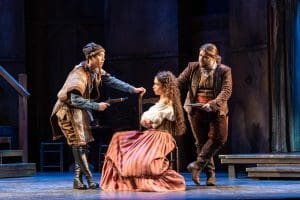 The strengths of Anna Maria Bruzzese’s direction lay in the restraint of motion shown during large crowd scenes, and in the visually dazzling bacchanalia created on four professional dancers who were inserted into the assembly. What was missing was a sense that Carmen and José were ever actually in love: or for that matter, that Carmen can love at all.
The strengths of Anna Maria Bruzzese’s direction lay in the restraint of motion shown during large crowd scenes, and in the visually dazzling bacchanalia created on four professional dancers who were inserted into the assembly. What was missing was a sense that Carmen and José were ever actually in love: or for that matter, that Carmen can love at all.
We really do want to admire this character, but that process works best when you see her genuinely fall in love with, and then out of love with, José. She seems stronger, ironically perhaps, when you get a glimpse of her vulnerability. Here we rarely felt a sense of “the tragedy of Carmen”: She actually struck us as a rather unpleasant person. Moreover, these days it does not “play well” when a woman demands, in the ugliest passive-aggressive fashion, that her soldier-lover shirk duty and go AWOL in order to prove his love.
—Paul Horsley
Carmen runs through October 2nd. For tickets call 816-471-7344 or go to kcopera.org.
To reach Paul Horsley, performing arts editor, send an email to paul@kcindependent.com or find him on Facebook (paul.horsley.501) or Twitter/Instagram (@phorsleycritic).
Features
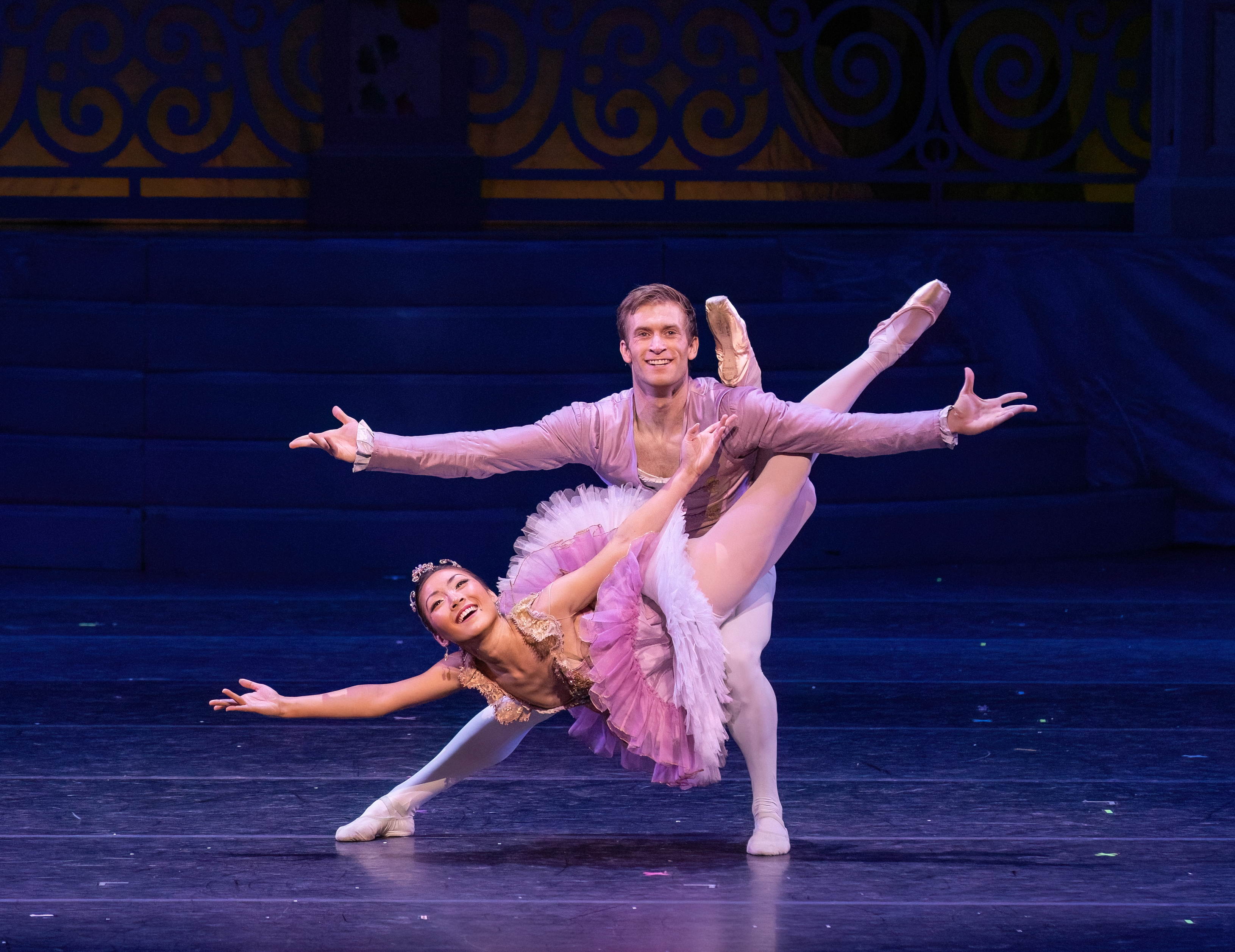
In 2015, the Kansas City Ballet treated its production of The Nutcracker to a complete makeover, with new set designs by Alain Vaës, costumes by Holly Hynes, and lighting by…
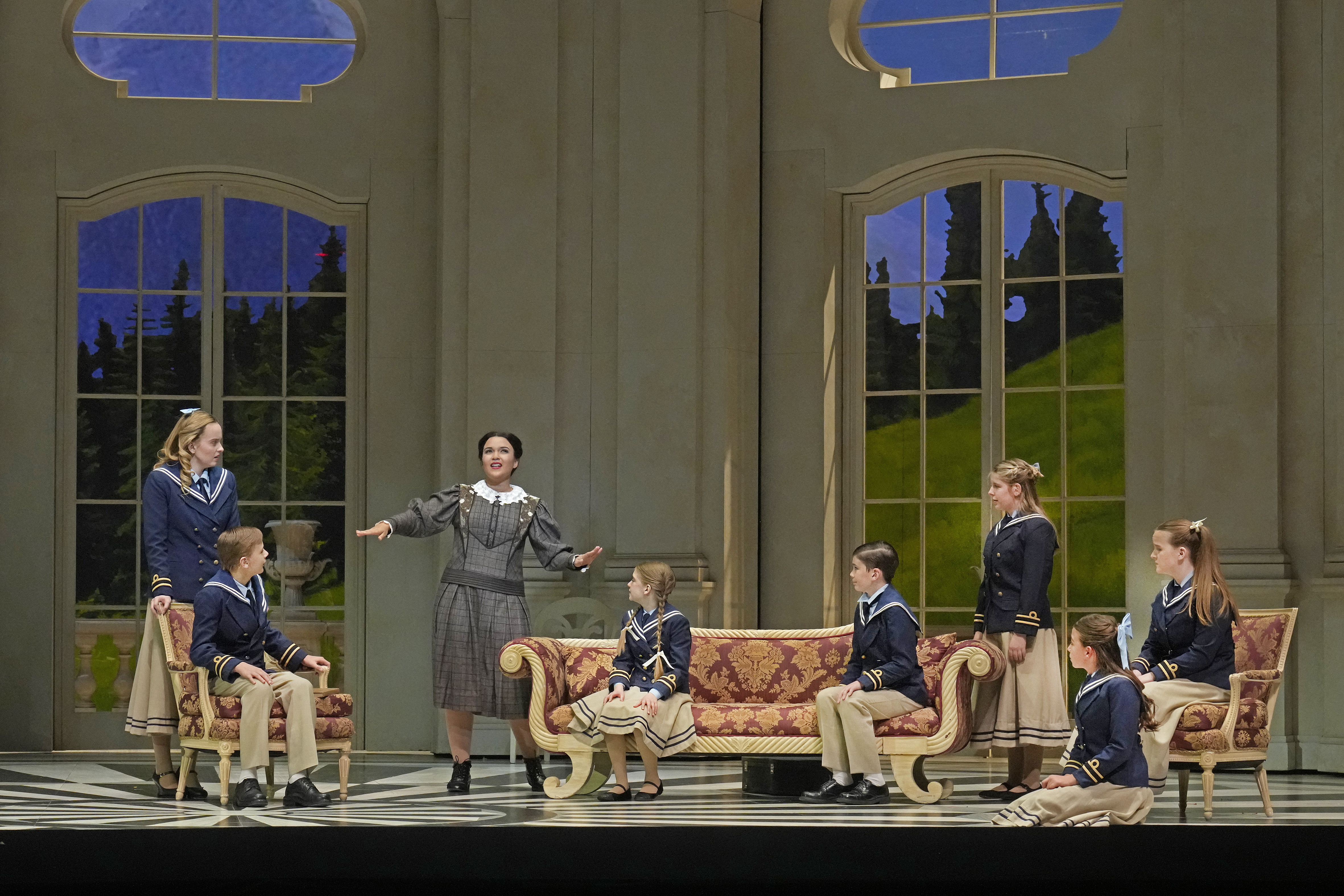
If any musical is worthy to be performed by an opera company, it is The Sound of Music. Its best songs are not just Rodgers & Hammerstein at their most…
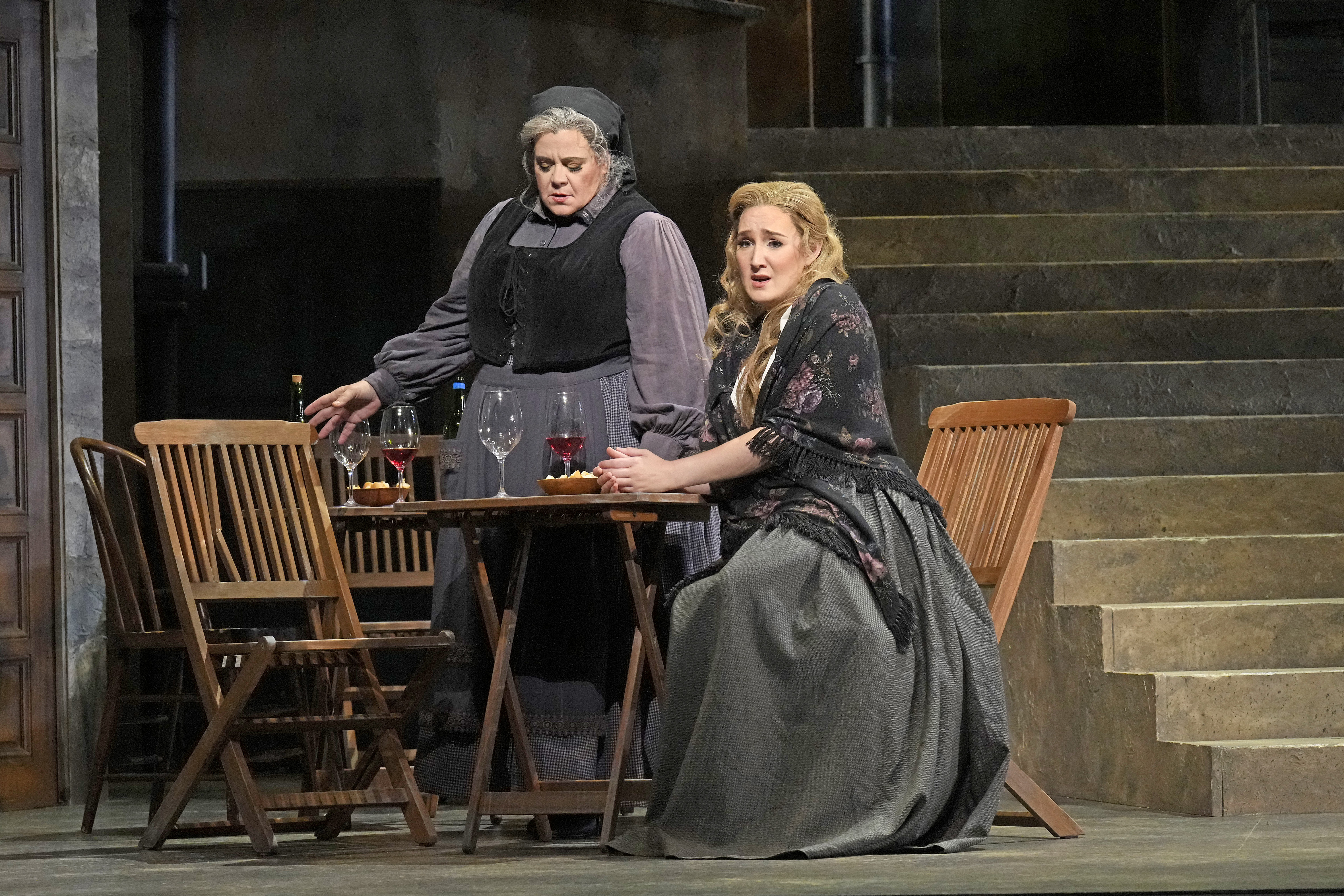
The double-bill of Pietro Mascagni’s Cavalleria rusticana (1890) and Ruggero Leoncavallo’s Pagliacci (1892) remains one of the most accessible evenings at the opera. With busy choruses, passionate arias and ensembles,…



